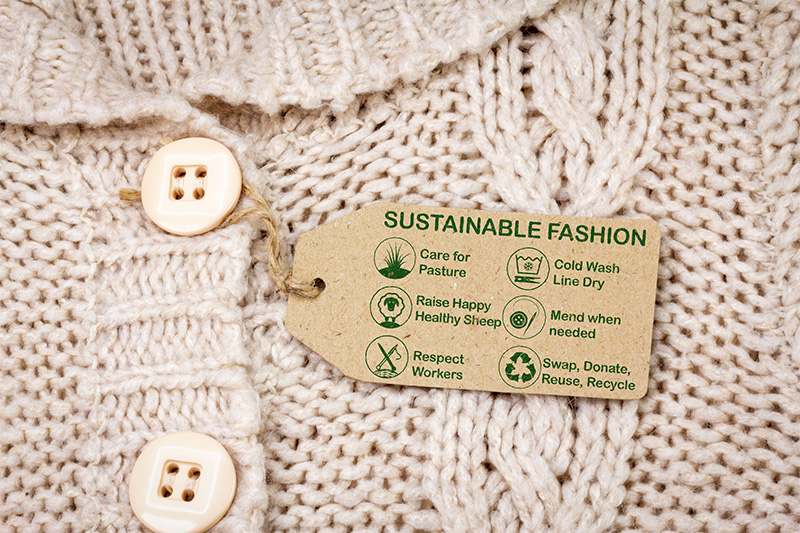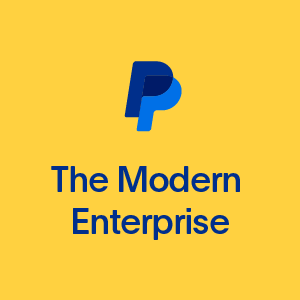The Modern Consumer: The Insights and Revelations Business Leaders Need to Act on

Regardless of where you do business, the past few years have been marked by economic uncertainty, fueled by market fluctuations, political unrest, and the long-reaching fallout of a global pandemic. However, despite the economy stalling, technological innovation has continued to surge, particularly around consumerism, leaving business leaders catching their breath as they maneuver through the new trends that will keep them ahead of the competition.
With the first few months of 2023 behind us, industry insights are beginning to show which consumer trends will continue to dominate and how consumer expectations continue to evolve. Here are some of the latest revelations that could help business leaders navigate the challenges ahead.
Straddling the Scrimp and Splurge

Consumers have seen a dramatic rise in their cost of living, from the price of groceries and gasoline to rising interest rates and higher utility costs, forcing them to think hard about how to spend any disposable income.
But after years of instability, lockdowns, and restrictions, shoppers have seemingly grown tired of holding back and want to live for the present. The result is a delicate dance as they sway between scrimping and saving and splurging on simple pleasures.
“Customers are seeking to enjoy experiences that are unlike any other, all while shopping smarter and managing their finances with more comprehension and savviness than before,” John Kim, PayPal’s Chief Product Officer, explained. “By reimagining how we add value to current offerings, businesses have the potential to supercharge a new wave of economic growth.”
Enhanced customer service is one way businesses can set themselves apart. A 2022 Invoca study found that despite inflation, 63% of consumers surveyed said they were willing to pay more for a product or service if it meant getting better customer service.
However, what is proving to have the biggest impact is offering customers more ways to pay, either through loyalty rewards, promotional discounts, and low-cost borrowing options such as a buy now, pay later payment plan.
A TRC survey commissioned by PayPal in 2021 found that 76% of BNPL users in the U.S. said having that option helped them better budget and manage their cash flow. Globally, nearly 25 million consumers have used PayPal BNPL services in 2022, marking 105% growth year-over-year, according to internal data. Furthermore, a 2021 study by Mercator Advisory Group predicted BNPL volume in the U.S. would surpass $100 billion annually by 2024.
“Simply put, offering flexible payment options and promotional rewards helps remove barriers for value seekers who have hard choices to make about their next purchase,” Kim said.
Prioritizing Trust and Transparency

However, hard choices about purchases are as much about trust as they are about anything else for the modern consumer.
As hard as the last few years have been on the economy, so has it been on public confidence in institutions. A Gallup poll released in July 2022 found that Americans have dwindling confidence in businesses, both big and small. In fact, confidence in big business dipped 4 percentage points to 14% in 2022 behind only TV news and congress as the third least-trusted institution.
Privacy and security are the two issues that could be weighing on consumers’ minds as the digitization of the economy means they leave behind a significant data footprint each time they transact online, and the amount of data being collected is growing exponentially. Furthermore, as tools such as augmented reality continue to play a growing role in consumerism, shoppers want to be reassured that security measures are keeping up with the pace.
According to the KPMG Corporate Data Responsibility Survey 2022, 92% of Americans surveyed said they were concerned about how their personal data is handled by companies. Furthermore, nearly nine out of 10 respondents said businesses should be more transparent about how they handle consumer data.
“It’s not enough anymore to be a large global brand with a good reputation,” Kim said. “Brands need to be transparent about how they are using data to improve and personalize the consumer’s shopping experience. They also need to be clear about what they’re doing, including working with experienced and trusted partners, to minimize risk.”
Today, people commonly – and willingly – use devices that track their location, sleep patterns, fertility cycles, and shopping habits, using facial recognition and fingerprints to unlock access to platforms. In fact, 34% of global consumers say they wear a trackable device. They subscribe to these features because they find the data about themselves valuable and enriching.
“This will be a growing theme throughout 2023 and beyond – how to use data to create adaptable experiences. Data is a powerful tool for big business but also for savvy consumers who want an efficient and tailored shopping experience,” Kim said. “Being transparent builds trust, but it is also imperative to build customer loyalty.”
Being Valiant about Values

Today, it’s not enough to build trust in a platform. Consumers want to know they are transacting with companies that share their values and operate with a deep social conscience when it comes to matters of the environment and social justice.
A 2022 global survey found half of consumers said they were willing to pay a premium for a sustainable brand and product. Furthermore, 49% said they’ve paid more money for products that are branded as being sustainable or socially responsible.
While the environment remains one of the top concerns for socially conscious consumers, recent research commissioned by Google Cloud found out exactly how far people are willing to go to stand up for the values they believe in. About 82% of consumers say they want a brand’s values to align with their own and 75% of those shoppers went a step further, saying they parted ways with a brand over a misalignment in values.
The modern consumer is engaged, social, and educated and, most importantly, can easily spot a company that is inauthentic when it comes to its public position on current affairs.
Impactful actions resonate most with this audience and they will be looking for ways businesses meaningfully contribute to causes, from reducing packaging waste to investing in designers and products from marginalized communities to creating a business model that takes the company’s carbon footprint into account.
Even a company’s returns process can have an impact. Increasingly, companies are adopting a bulk return format, where customers drop off unwanted items at a nearby depot and the goods are shipped back to the company in bulk rather than on an individual basis, significantly helping reduce their carbon footprint.
According to 2022 internal data from PayPal’s Happy Returns, on average, there was only one shipment made for 17 returns. Furthermore, customers were happy with the process. Happy Returns garnered a 93 lifetime Net Promoter Score from hundreds of thousands of shoppers, according to a 2022 Delighted by Qualtrics survey commissioned by the company.
“It’s good for business but, most importantly, it’s the right thing to do,” said Kim. “Creating solutions that are valuable to a consumer while informing them of how they are helping the business make an impact is a powerful way to show how when consumers and companies are aligned, real, positive change takes place.”
Wagering on Wellness
As much as consumers want to ensure their purchases are making a positive environmental change, they are also looking to make improvements within their own lives. Years into a global pandemic, the attention is increasingly shifting to the decline of our collective mental health with the United Nations declaring the situation “extremely worrying.”
“It is estimated that the pandemic has caused a 25% to 27% increase in the prevalence of depression and anxiety around the world,” the U.N. said in its report.
One of the ways consumers have dealt with their declining mental health is by spending their income on experiences and products that will improve their overall wellness. Globally, people spent about $1.5 trillion a year on consumer health and wellness products in 2022. The travel industry is also experiencing a boom. Despite years of being stunted by pandemic fears and border closures, this year is positioned for tremendous growth. According to data from Statista, the market value of the global tourism industry pre-pandemic in 2019 was pegged at $776 billion. The projected revenue for 2023 is now expected to grow to $852 billion.
Surprisingly, although the wellness industry is a crowded one, consumers appear to have an insatiable appetite, leaving the door open for businesses that can help fill the gap.
Recent research from McKinsey and Company found millennials and Gen Z desire more wellness products and services at a rate that is 6 to 7 percentage points higher than that of the average consumer.
“There is a real opportunity for businesses to find a way to connect with their customers over their desire to improve their overall wellness,” Kim said. “Companies in every industry can benefit from understanding how important wellness has become to their consumers and the ways in which their wellness needs continue to be underserved.”
The consumer’s focus on wellness, flexibility, corporate values, and trust reflects the unpredictable and difficult time that has marked the past few years. But today’s modern consumer is marching forward determined and yet cautious, hyper-aware with a sense of duty and sensitive social conscience. Most importantly, they are walking into the future with a renewed zeal for adventure and discovery. As business leaders, our job is to make sure they have the inspiration, confidence, and support to realize the adventures before them.
The content of this article is provided for informational purposes only. You should always obtain independent business, tax, financial, and legal advice before making any business decision.

The Modern Enterprise series explores the issues and opportunities shaping today’s most successful companies. Read about innovations that change the competition, new ways of doing business that consumers have come to expect, and hear from industry leaders on their decisions and the lessons they’ve learned. Read more or sign up for the newsletter here. For more on how PayPal can help your company, visit PayPal for Enterprise.